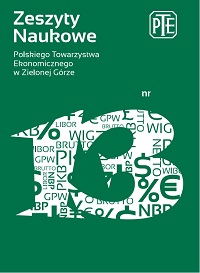Ekonomia behawioralna w Pracowniczych Planach Kapitałowych – analiza skuteczności
Behavioral Economics in Employee Capital Plans (PPK) –the analysis of its efficiency
Author(s): Łukasz BaszczakSubject(s): Economy, National Economy, Financial Markets
Published by: Polskie Towarzystwo Ekonomiczne w Zielonej Górze
Keywords: behavioral economics; Employee Capital Plans; pension economics; pension system; bounded rationality; default bias; auto-enrolment
Summary/Abstract: The aim of the article is to analyze the Employee Capital Plans (PPK) introduced in Poland in 2019 in the light of behavioral economics and answer the questions about what behavioral or nudge tools were used in the design of thePPK and how effective they were, taking into account the scale of membership in the PPK after a year since of functioning. This was related to the evaluation of the performance of the PPK to date, in particular in comparison with programs of this type in countries such as New Zealand or Great Britain. The paper discussed selected discoveries and ideas of behavioral economics and the possibility of their application in the pension system, in particular in additional occupational private pension savings programs that use auto-enrollment as a default option with the possibility of voluntary opt-out. Data on the first year of functioning of the PPK was analyzed and it was compared to the corresponding period for similar programs in Great Britain and New Zealand. It allowed to shed light on certain aspects of the future PPK functioning.
Journal: Zeszyty Naukowe Polskiego Towarzystwa Ekonomicznego w Zielonej Górze
- Issue Year: 7/2020
- Issue No: 13
- Page Range: 5-17
- Page Count: 13
- Language: Polish

